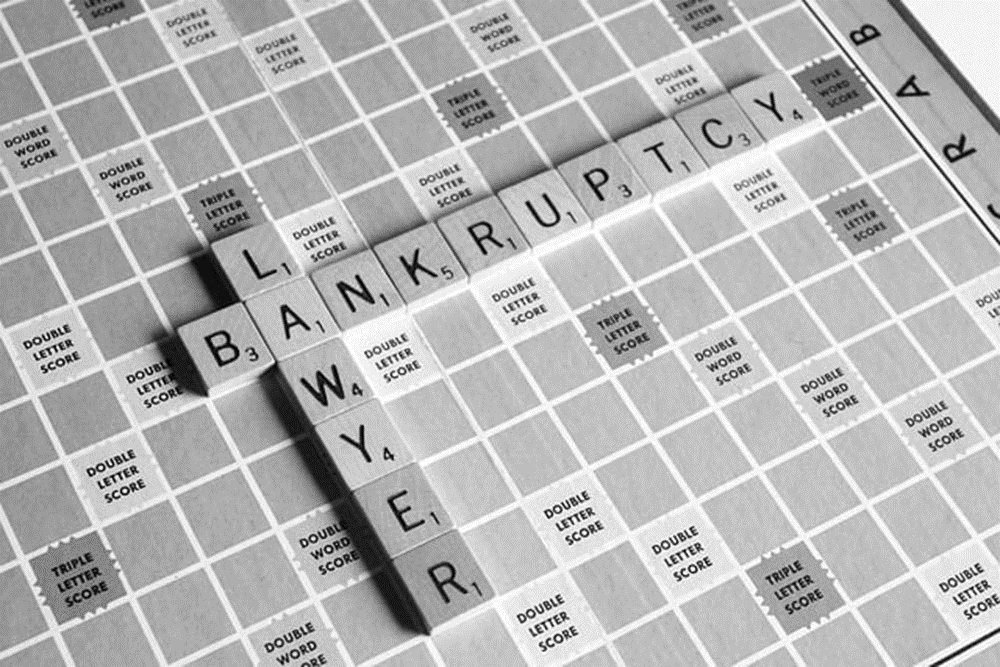Blog

Can I Keep The Furniture I Am Financing After I File For Bankruptcy In Georgia?
Bankruptcy | August 24, 2024 | Lee Paulk Morgan
Yes, you can keep the furniture financed in Georgia after bankruptcy.
- Georgia exempts a portion of household goods, including furniture.
- The exemption is $5,000 for single filers and $10,000 for married couples filing jointly.
- There’s also a $300 limit per item.
Tip: Current value, not purchase price, matters.
Financial hardship can be overwhelming, and the debt burden can feel impossible to manage. If you’re struggling to keep up with payments, including those on financed furniture, you may be considering bankruptcy to get a fresh start. But what happens to your belongings, like financed furniture, when you file for bankruptcy in Georgia?
One important decision you may need to make relates to the options available regarding financed furniture in a Georgia bankruptcy case. Like many other debtors, you may ask: Can I keep the furniture I am financing after filing for bankruptcy in Georgia? To appreciate the answer, you need to know about Chapter 7 bankruptcy exemptions, how to determine your property’s value, and alternative solutions you might consider.
A Georgia bankruptcy attorney can provide details to help you determine the best decision for your needs, and you can read on for an overview.
Chapter 7 in Georgia: All You Need to Know
Chapter 7 bankruptcy is the most common type of bankruptcy filed by individuals seeking debt relief. In a Chapter 7 case, the court appoints a trustee to gather your non-exempt assets and sell them to pay back your creditors to the extent possible. However, Georgia law on exemption rules allows you to exempt certain items from liquidation, which means you can keep certain non-exempt property.
Fortunately, at the conclusion of a Chapter 7 case, you will be debt-free with respect to qualifying debt. However, you will still owe on secured debt, such as a mortgage or car loan.
How Do Exemptions Work in Chapter 7?
Exemptions are categories of property established by state and federal law that are shielded from seizure by the bankruptcy trustee. These exemptions allow you to retain essential items for a fresh start. Learning about Georgia’s Chapter 7 bankruptcy exemptions and exemption limits is crucial when determining whether you can keep your financed furniture.
Chapter 7 Bankruptcy Exemptions in Georgia
Georgia offers a combination of federal and state exemptions for Chapter 7 filers. The specific exemption that applies to your financed furniture will depend on the type of furniture and its value. Here’s a breakdown of some relevant exemptions:
- Household Goods Exemption: Georgia exempts a debtor’s interest in household furnishings and goods, including furniture, with a total value of up to $5,000 if you’re single and $10,000 if you’re married. There’s also a $300 limit on the value of any single item.
- Wildcard Exemption: Georgia provides a “wildcard” exemption that allows you to exempt up to $5,000 of additional property of your choice. This exemption can be used on any asset, including furniture if another exemption does not cover it.
How Do I Determine if My Property is Exempt and Therefore Protected?
To determine if your financed furniture is exempt in your Chapter 7 case, you’ll need to consider two factors:
- Total Value of Your Furniture: Add up all your furniture’s estimated fair market value, not just the financed pieces. Your furniture is likely exempt if the total value falls below the exemption limit ($5,000 or $10,000).
- Value of Individual Items: Even if the total value exceeds the exemption limit, some individual pieces might still be protected if their value is below $300.
Personal Items and Household Goods
It’s important to note that the household goods exemption applies to furniture used for personal, family, or household purposes. The exemption might not fully cover luxury furniture or valuable antiques, especially if their individual value exceeds $300.
Determining the Fair Market Value of Real and Personal Property
When estimating the fair market value of your furniture, consider what someone would be willing to pay for it in a private sale, not necessarily what you originally paid. For valuable pieces, you can research online marketplaces and garage sale prices or consult with an appraiser.
What’s the Difference Between State and Federal Chapter 7 Bankruptcy Exemptions?
While Georgia offers its own set of exemptions, federal bankruptcy exemptions exist. In an opt-out state like Georgia, you must use the state exemptions. However, you might apply the federal exemptions or those of other states if you are a new resident to Georgia. For most cases, the Georgia exemptions are more generous for debtors. Your bankruptcy attorney will advise you on which exemptions are most beneficial for your case.
Options if You’re Financing Furniture in Bankruptcy
Chapter 7
Even if your financed furniture isn’t fully exempt, you still have options in a Chapter 7 case:
- Reaffirm the Debt: With court approval, you can reaffirm the debt outside of the bankruptcy case and continue making loan payments on the furniture. This option allows you to keep the furniture, but you’ll still be responsible for the debt.
- Redeem the Furniture: In some cases, you can pay the lender the fair market value of the furniture to keep it. This option can be good if the furniture is essential and the fair market value is lower than the remaining loan balance.
Chapter 13 bankruptcy is another option for individuals seeking debt relief. Unlike Chapter 7, which focuses on liquidation, Chapter 13 involves creating a court-approved repayment plan that lasts 3-5 years. You’ll make monthly payments to a bankruptcy trustee who disburses the funds to your unsecured creditors.
In a Chapter 13 case, you can include the debt on your financed furniture in your repayment plan. This allows you to keep the furniture while catching up on missed payments and potentially reducing the overall debt through interest rate adjustments.
Voluntarily Surrender Property in Chapter 7 or Chapter 13
While we’ve explored various options for dealing with financed furniture in bankruptcy, a fundamental concept applies to both Chapter 7 and Chapter 13: you always have the right to surrender secured property voluntarily. This means you can give the lender back the furniture, allowing them to repossess it.
Surrendering property offers several advantages:
- Debt Elimination: By surrendering the furniture, you eliminate the debt associated with it. This can significantly reduce your debt burden and free up financial resources for other necessities.
- Simplified Process: Voluntary surrender streamlines the bankruptcy process. The trustee won’t need to take any action to sell the furniture, potentially expediting the case.
- Improved Credit Score: While bankruptcy will harm your credit score, surrendering collateral and eliminating the debt associated with it can demonstrate responsible behavior to creditors and potentially help your credit score recover faster in the long run.
However, there are also drawbacks to consider:
- Loss of Possession: The most significant consequence is losing possession of the furniture. This can be a major downside if the furniture is essential for daily living or has sentimental value.
- Potential Deficiency Judgment: In some cases, if the fair market value of the furniture is less than the outstanding loan balance, the lender might seek a deficiency judgment. This court order requires you to repay the remaining debt after the furniture is repossessed and sold.
- Negative Impact on Credit Score: While surrendering the furniture eliminates the debt, it can still negatively impact your credit score, especially if you have a history of late payments or defaults on the loan.
Other Options
Contact the Lender: Before filing for bankruptcy, consider contacting your lender directly. Explain your financial hardship and see if they can work out a modified payment plan. You might agree to extend the loan term, lower the interest rate, or obtain a temporary payment deferment.
Sell the Furniture Yourself: If your furniture isn’t exempt and you don’t want to reaffirm the debt, you can try selling it yourself through online marketplaces, consignment shops, or garage sales. This allows you to generate cash to pay down the debt or use for other necessities.
Considering Your Options and Next Steps
The decision of what to do with your financed furniture in a bankruptcy case depends on your specific circumstances. Here are some factors to consider:
- The value of the furniture: If it is inexpensive and not essential, surrendering it might be the most practical solution.
- Your future financial outlook: If you anticipate a stable income, reaffirming the debt or including it in a Chapter 13 plan might be viable options.
- Your emotional attachment to the furniture: Consider the sentimental value of the furniture. If it is significant, you might prioritize keeping it.
Consulting with a Georgia bankruptcy attorney is crucial. They can analyze your financial situation, assess your exemptions, and represent you in federal court. An attorney can also help you navigate the bankruptcy process’s complexities and protect your rights.
Secure Your Financial Future, Start Today
Financial burdens shouldn’t prevent you from a fresh start. Kostopoulos Bankruptcy Law can help you explore your options under Georgia bankruptcy law. We’ll work tirelessly to protect your assets, including furniture, and guide you toward a brighter financial future. Don’t delay; take control of your situation today.
To learn more, contact Kostopoulos Bankruptcy Law for a free consultation. You can reach our office at (877) 705-1326 or via our website.
Answers to Bankruptcy FAQs
Is furniture an asset in bankruptcies?
Yes, furniture is considered an asset in bankruptcy filings. This applies to both Chapter 7 and Chapter 13 bankruptcy, which aim to discharge qualifying unsecured debts. However, Georgia’s bankruptcy exemptions allow you to protect a certain value of your household goods, including furniture. An experienced Georgia bankruptcy attorney can help you determine if your furniture is exempt and protected from liquidation in your case.
Can you finance furniture while in Chapter 13?
Yes, you can technically finance furniture while enrolled in a Chapter 13 bankruptcy plan. However, consulting with your bankruptcy attorney before taking on any new debt is important. They can advise you on your repayment plan’s potential implications and financial situation. Sometimes, the court might not approve your Chapter 13 plan if it includes incurring new debt.
Can you keep anything in a Chapter 7 bankruptcy?
Yes, under Chapter 7 bankruptcy law, you can exempt certain property from seizure by the trustee. Georgia offers exemptions for various categories of assets, including household goods (which can include furniture). The specific exemptions available to you will depend on your filing status (single or married) and the total value of your assets. Consulting with a Georgia bankruptcy attorney is crucial to understanding which exemptions apply to your situation and how much of your furniture you can potentially keep.
Get Relief for Furniture Worries
Facing financial hardship and unsure about the fate of your financed furniture? Don’t navigate the complexities of bankruptcy law alone. Kostopoulos Bankruptcy Law can help. Our experienced Georgia attorneys understand the intricacies of Chapter 7 and Chapter 13 exemptions and can guide you toward the best course of action for your situation. Get the relief you deserve.
Contact Kostopoulos Bankruptcy Law today for a free consultation. You can visit our website or call (877) 705-1326 to speak to a member of our team.
Related Content: What are the consequences of filing for bankruptcy in Georgia?

Lee Paulk Morgan
With more than 41 years of experience in the areas of Bankruptcy, Disability, and Workers’ Compensation, Lee Paulk Morgan is one of the most respected Bankruptcy and Disability attorneys in Athens, Georgia. His tireless dedication to serving clients has gained him the reputation of a premier attorney in his areas of practice, as well as the trust and respect of other legal experts, who often refer clients to him.
SHARE
RELATED POSTS
What’s the Difference Between Chapter 7 vs Chapter 13 Bankruptcy in Georgia?
Filing for bankruptcy can feel overwhelming, especially when trying to understand your options. You might be asking: What’s the difference between Chapter 7 vs Chapter 13 bankruptcy? The main difference between Chapter 7 and Chapter…
Selling Your Home During or After Bankruptcy In Georgia
Your Home and Bankruptcy in a Nutshell Considering selling your home can be a complex decision, especially if you’re simultaneously facing financial difficulties and contemplating bankruptcy in Georgia. Specifically: If you’re in Chapter 13, court…








